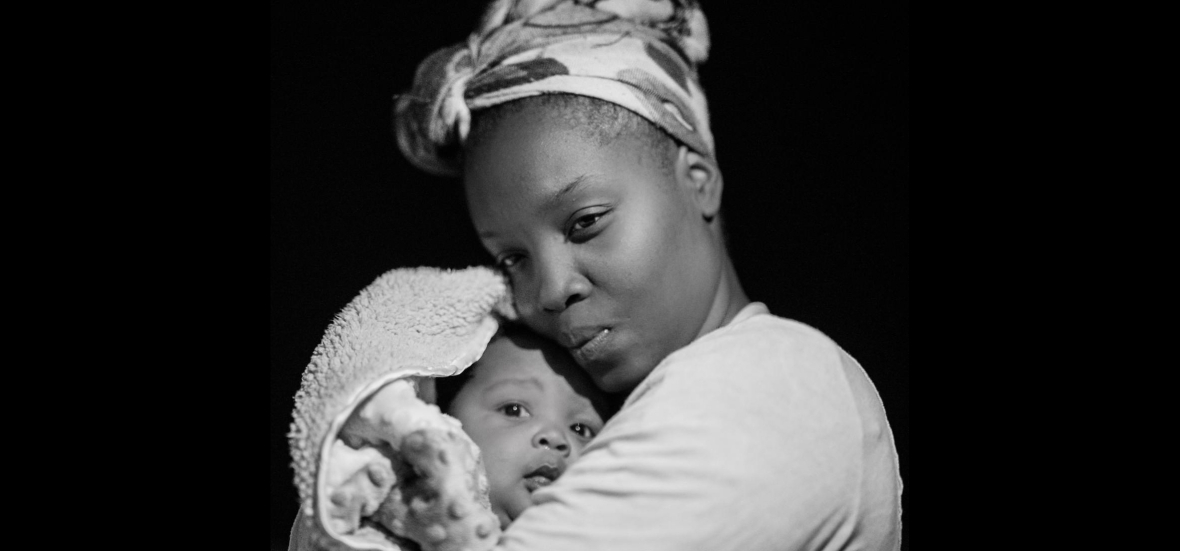
Nathan Ahearne considers Mary's example of parenting: putting aside her own hopes to further God's plan.
Mary's pondering and her intimate connection to the sufferings of Christ have always been honoured by the Church. Only a mother who was consumed by grace could stand by and watch the unfolding of events of Easter (Frisk, 2018). In her book, The Grace of Yes: Eight Virtues for Generous Living, Lisa Hendey posits that whilst our yes to God is important, we must also be willing to say “no”: no to our own agendas, needs and hopes.
Mary knew from the moment the Angel Gabriel spoke to her that it would require supernatural cooperation to allow God’s plans to play out in her life. Her response reveals a willingness to accept this invitation, “I am the Lord’s servant. Let everything you’ve said happen to me” (Luke 1:38). How often are we tempted to push our own plans onto God, to be in control, allowing anxiety to dominate our decisions, or slipping into frustration because of the situations we find ourselves in? For all that takes place in Mary’s life, we don’t hear of such a response. Indeed, she offers the exact opposite, a model of discipleship that was full grace. Her ‘yes’ is a silent nod to God through her life, particularly through the trials of Jesus’s passion.
Mary was not the first mother to experience returning her son to the Father. Scholars note “the incredible gratitude and selflessness of Hannah in giving up or consecrating her son [Samuel] to God, and her love for him, as evidenced by her making his garments” (Anang, 2018). Could Mary have known what awaited Jesus when she and Joseph looked down at their new born son? Parents may feel a similar feeling of returning their child to the Father, as they leave home and follow their vocation in life. Whilst it is both healthy and necessary for the apron strings to be severed, as children find their independence and set out into adulthood, it also requires a letting go. Children inevitably make their own path in life, and empty nests once filled with school bags and toys can seem lonely. Did Mary experience this emptiness as Jesus embarked on his public ministry?
Parents have an awesome responsibility to raise children who can make good choices, love others, and follow their hearts, but they must allow the freedom to do this independently. It is a joy to see young adults blazing new trails, but this independence can also lead to disappointment in the paths chosen. Loving parents accept that their child’s choices are beyond their control and that their hopes and dreams may not always be aligned. Many parents raise their children in the faith to later watch them shed their religious practices as young adults. What more can they do than ask the Holy Spirit to guide their child? No doubt Mary wondered about the choices Jesus made and yet, we don’t see her intervening in Jesus’s life, other than to encourage Him at the Wedding at Cana. She stood firm as Jesus made His decision to place the lives of others ahead of His own.
Surely Jesus’s prediction of His betrayal at the Last Supper would have angered the most gentle of mothers and yet, the Gospel writers don’t mention any protest from Mary. Parents deeply feel an injustice directed toward their children, from playground quarrels and heartbroken relationships to unscrupulous employers. Parents desire to advocate, defend, and protect their children. Mary watched Peter deny her Son three times, the same friend who had previously promised his undying love. The pain of seeing a love one betrayed is undeniable and instead of scorn, yet Mary demonstrates great forgiveness of Peter as he returns to the tomb of her resurrected Son.
In Mel Gibson’s Passion of the Christ, Jesus falls under the weight of the cross and Mary recalls a scene of her child running care free and tripping over. It is a heart gripping moment for every parent who knows the feeling of seeing their child fall and cry out in pain. We resist the temptation to smother our children in bubble wrap in order to protect from injury, because we know that our children must experience the world and all its adventures, risks, and dangers. When our children suffer we feel their pain and naturally want to remove it, but Mary somehow understood that the suffering of Jesus was necessary and she resisted the urge to take the yoke from Him.
Kathy Thomas recalls her experience of being unable to remove the suffering of her child: “Covered in his blood, I stood silently, alone in the hospital room, watching my baby breathe with my hand carefully placed on his back, hoping to feel his heart still beating.” Like Mary at Calvary, Kathy recalls how she was “speechless as I endured the “privilege” that most people will never experience of literally being covered in the innocent blood of my beloved son. There is a depth of the gospel that is incomprehensible until you have experienced such a thing. It seared into my soul how great the Father’s love must be for us, that He would allow His beloved only Son to endure such undeserved suffering and draw us near to Himself.”
In his final moments of life, Jesus offers Mary hope, as she kneels at the foot of the cross with John the beloved disciple. Pope John Paul II summed up his reflections of Jesus’s words to Mary, "Behold your son," making “Mary the mother of John, and of all the disciples destined to receive the gift of divine grace. On the cross, Jesus did not proclaim Mary's universal motherhood formally, but established a concrete maternal relationship between her and the beloved disciple. In the Lord's choice we can see his concern that this mother should not be interpreted in a vague way, but should point to Mary's intense, personal relationship with individual Christians” (Theotokos, p. 190). Even through her unimaginable suffering, Mary adopts us as spiritual children and models a discipleship that is based on the hope of God’s promise. Despite an inability to fully comprehend all that has taken place, Mary knows that the story cannot be over and patiently awaits the next chapter.
How true it is that mothers never give up hope in their children, no matter how dire, and are always ready for a second chance and a fresh start. Whilst the Gospels mention various appearances of the resurrected Christ, there is no recorded meeting between Jesus and His Mother. “This silence must not lead to the conclusion that after the Resurrection Christ did not appear to Mary; rather it invites us to seek the reasons why the Evangelists made such a choice” (JPII, 1997). The Pontiff speculates that the Gospel writers omitted Mary because of her bias as a witness to the resurrection.
He also considers that it is legitimate to think Mary was the first person that Jesus chose to appear to, on account of her faithfulness, and therefore was not included in the account of the group of woman who went to the tomb. It is these woman who joyfully return to the disciples with the news of Jesus’s resurrection and it is easy to imagine Mary quietly smiling, with the full knowledge of the greatness of her Son, finally revealed to all.
Mary’s life reflects a silent, inward knowing. A pondering which drew the fragmented pieces of Jesus’s life together in her heart; the celebrations, healings, laughter and tears, taking it all in, but not taking it on.
How often are we tempted to push our own plans onto God? #catholicmom
Copyright 2020 Nathan Ahearne
Image: Andrae Ricketts (2017), Unsplash
About the Author

Nathan Ahearne
Nathan Ahearne's faith journey has helped to shape the person he is today as husband, father, teacher and formator of young people. His vocation and faith are strengthened and nourished by those he encounters in service and contemplation. Nathan is a creative thinker and likes to roll up his sleeves and see projects through to completion. He is a John 10:10 fan. Read more at Expressions of Interest.


.png?width=1806&height=731&name=CatholicMom_hcfm_logo1_pos_871c_2728c%20(002).png)
Comments